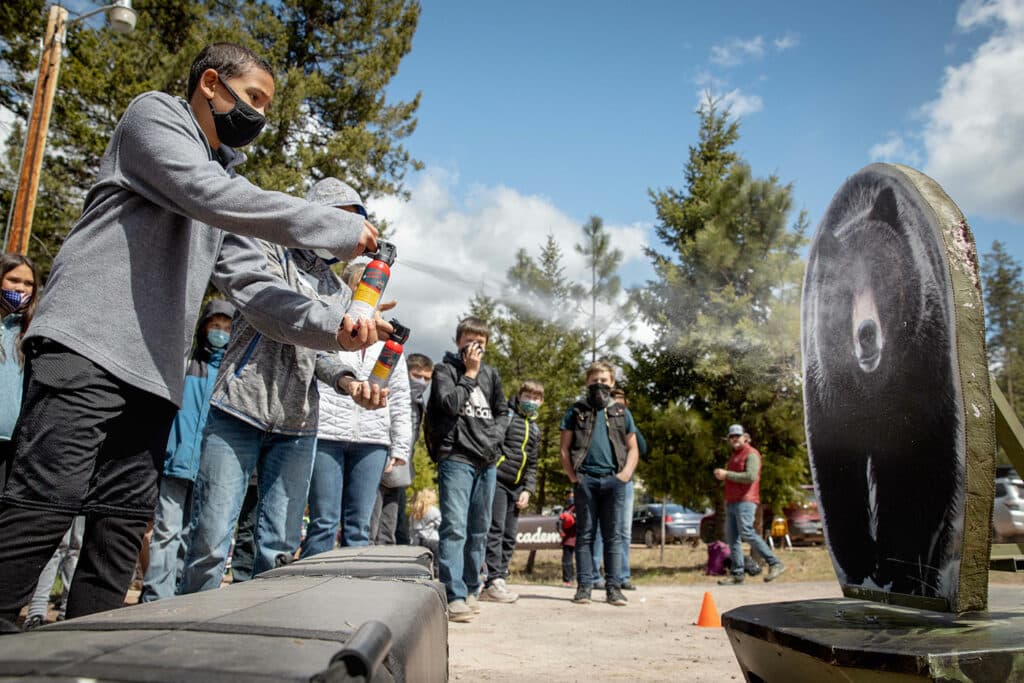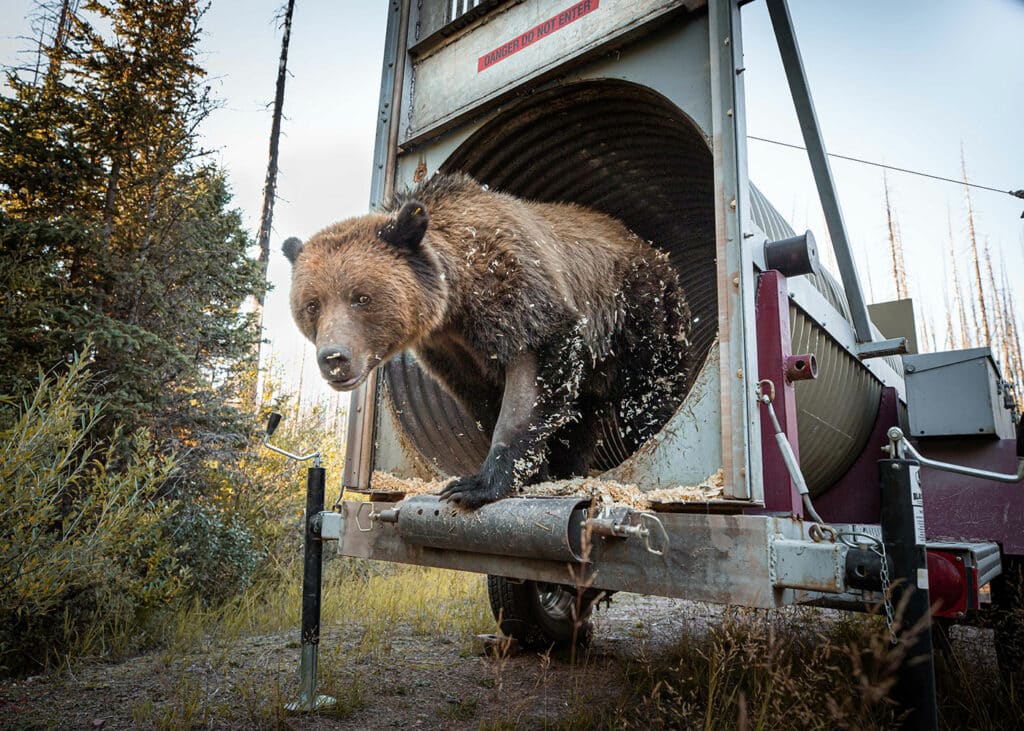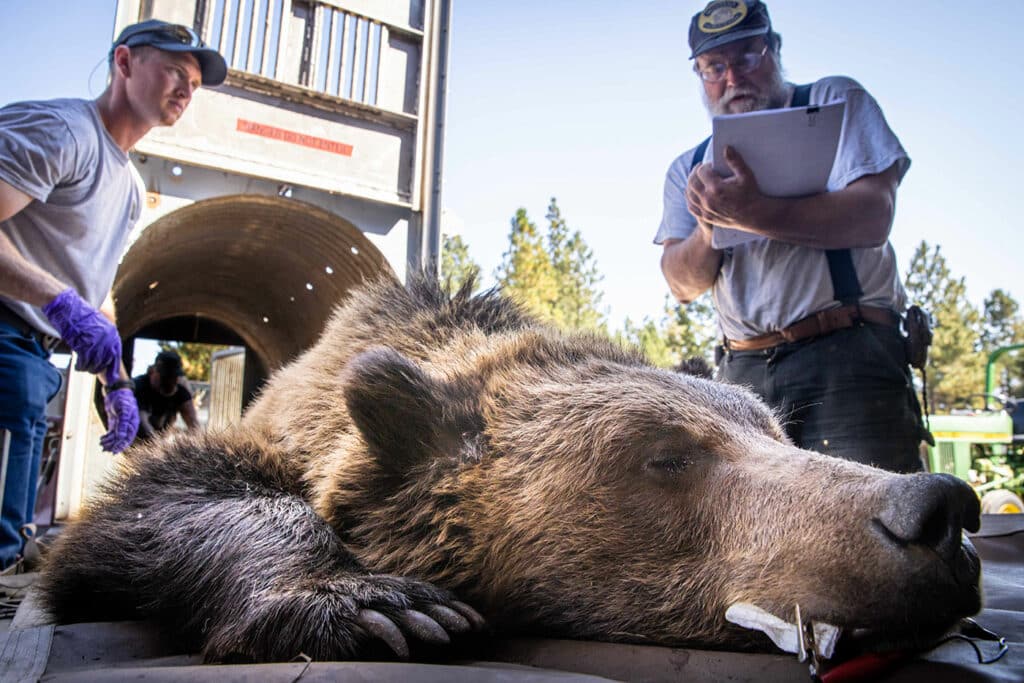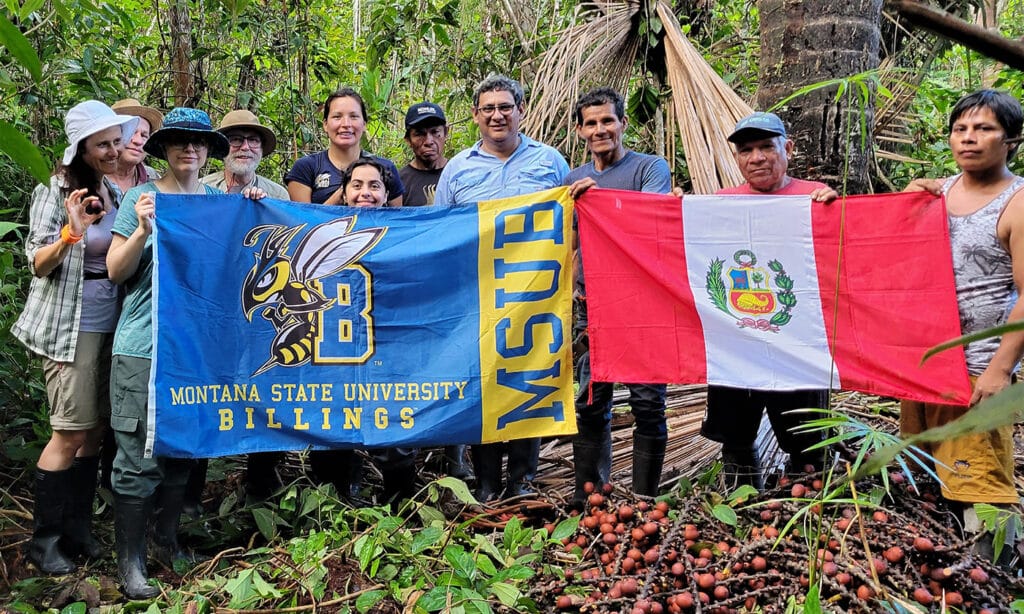Supporting Humanities Across the State
Humanities Montana awarded $168,449 in 2023, supporting 55 humanities projects in 31 different Montana communities. These grants supported public programming and projects that strengthened cooperative relationships among communities and enriched civic discourse across the state.
20 Regular Project Grants
18 Opportunity Grants
11 Big Sky Reads Stipends
5 Film & Video Grants
2 Research Fellowships
These Programs Were Made Possible by the Support of NEH and Your Generous Gifts

Connecting The Grizzly is a documentary film that dives into the human side of grizzly bear conflict that’s been escalating across Montana. This project seeks to highlight the interdisciplinary, cross-cultural approaches that have the potential to address human-wildlife conflict in ways that benefit both human and wildlife populations at a time when the state is experiencing more crowded landscapes than ever before.
To have Humanities Montana invest in a film about grizzly bears speaks volumes about the way the organization deeply understands that conservation issues are fundamentally human issues. The more we learn to engage in dialogue across cultural, political, and economic boundaries, the more able we’ll be to arrive at solutions that benefit all communities, whether they walk on two legs or four. It is an example of how instrumental a humanities-focused approach can help address some of the most pressing environmental issues of our time.”
– Rob G. Green, Filmmaker
This week-long project focused on how watersheds shape communities, lifeways, and narratives, the challenges faced by contemporary rural and urban riparian cultures, and the role literature and folklore play in adapting to changing conditions. MSUB brought three writers and scholars with ties to Amazonia, including Shawi philosopher, teacher, and community leader Rafael Chanchari Pizuri, to Billings. He was accompanied by poet, filmmaker, and folklorist Juan Carlos Galeano, who was born in the Colombian Amazon and now teaches at Florida State University, and Swiss scholar Corinne Fournier Kiss, of the University of Bern, whose research addresses Amazonian literature. Events included a keynote address by Fournier Kiss, a joint presentation by Chanchari and Galeano as part of MSUB’s Sue Hart memorial lecture series, a film showing, a presentation by former and current MSUB and FSU students who had accompanied us to the Amazon, and a poetry reading.
As the twenty-first century progresses, it is becoming increasingly clear that how people connect to their environments is crucial to the viability of life on earth. The Watershed Peoples program engaged poetry, storytelling, philosophy, music, and film to foster deeper and more grounded understandings of the natural and cultural ties that bind peoples across the Western Hemisphere. It also allowed for fruitful discussions based on shared or parallel experiences linking river-valley people on both sides of the Equator.”
– Dr. Bernard Quetchenbach, MSUB Professor and project director
Blaine County Museum welcomed Blaine County historian Austin Haney and historian and author Anthony Wood to Chinook to participate in their Winter Speakers series. The lectures discussed people and communities which have historically been excluded from conversation in Montana. Haney shared the history of explorers in the Bear Paw Mountain area who were documenting the area which is now Blaine County as early as the 1690s, as well as explaining the movement of tribes through the area from the 1600s through the 1800s. Wood discussed recent and often overlooked history of Black Montanans and shared the history of a few Black Montanans to lend a glimpse of what life was like for this demographic during the late 19th–early 20th centuries in Montana.
YouTube Recording of Austin Haney
YouTube Recording of Anthony Wood
This project explored diverse perspectives about Montana and Blaine County – challenging the notion that Chinook, the surrounding communities, and communities across the state have always looked the way they do today. It was important for this reason and attendees valued learning about these diverse perspectives.”
– Samantha French, Blaine County Museum Director
2023 Grant Numbers
Number of Applications received
Number of Projects Funded
Amount of funds requested
Amount of funds awarded
Total attendance for all live grantee-conducted activities
Total attendance for all non-live grantee-conducted activities (recorded, printed, or digital activities)
Live activities conducted
Non-live activities conducted





